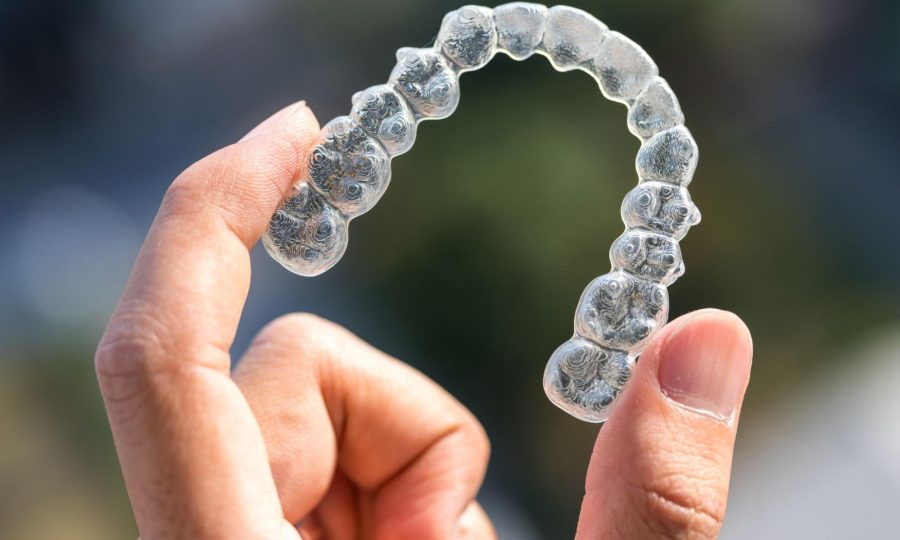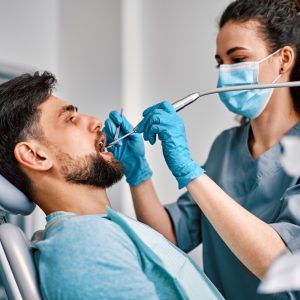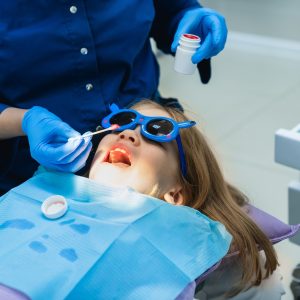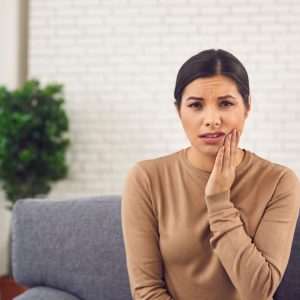Can Invisalign Correct an Overbite?
Overbites are a common dental issue characterized by the upper teeth projecting significantly over the lower teeth. An overbite doesn’t only affect one’s appearance but can also impact oral health and overall well-being.
Traditionally, braces were the go-to solution for correcting overbites. However, advancements in dental technology, such as Invisalign clear aligners, can provide an effective alternative to correcting an overbite. Your dentist can determine if Invisalign will work for your needs after they perform a dental exam.
What Is Invisalign?
Invisalign technology utilizes a series of clear, custom-made medical-grade plastic aligners that gradually move your teeth into the desired position. Unlike traditional braces, these aligners are virtually invisible and removable for eating, drinking, and dental hygiene, offering a less intrusive and more flexible treatment option for children and teens.
What Is an Overbite?
Malocclusion or bad bite is when the top and bottom teeth don’t align properly. An overbite is an improper bite where the upper front teeth overlap with your lower front teeth. An overbite can result in the following:
- Irritation of the teeth, gums, and tongue
- Wearing down of teeth
- Pain in the jaw
Can Invisalign Correct an Overbite?
The short answer is yes; Invisalign can effectively correct overbites in many cases. This method is particularly suited for mild to moderate overbites.
The Invisalign aligners apply gentle pressure to the teeth, shifting them gradually over time. However, the success of Invisalign in correcting an overbite depends on the specifics of the case, including the severity of the overbite and the patient’s adherence to the treatment plan.
Overbite Correction Process with Invisalign
The Invisalign process begins with a comprehensive examination by your dentist or orthodontist, who will assess your overbite and discuss whether Invisalign is the right treatment for your needs. If so, they will create a custom treatment plan using 3D imaging technology to map out the movement of your teeth.
Customization
Your treatment plan will determine the total number of clear aligners. Each aligner is custom-made and designed to make specific, incremental adjustments to the tooth position as prescribed by the treatment plan.
Regular Check-Ups
Throughout the treatment, you have periodic check-ups with your dentist every 6 to 8 weeks to monitor progress, adjust if needed, and receive new aligners. Aligners are changed approximately every 2 weeks and should be worn for 20 to 22 hours daily. While you may feel some discomfort when replacing aligners, this should only last a few days as you get used to the new fit.
Duration of Treatment
Treatment times vary for individuals based on the severity of their overbite and the amount of correction needed. While traditional braces take around 24 months, Invisalign can take about 12 months. Once you complete your treatment, you’ll need to wear a retainer to keep your teeth in their new, aligned position.
Benefits of Invisalign for Overbite Correction

Invisalign offers several advantages over traditional braces:
- Quicker results: Invisalign often works faster than braces.
- Aesthetics: The clear aligners are less noticeable, providing a more cosmetic solution.
- Comfort: Without wires or metal brackets, Invisalign aligners are often more comfortable.
- Hygiene: Removable aligners facilitate easier cleaning of teeth and gums, promoting better oral health.
- Lifestyle: Invisalign allows you to maintain your lifestyle without restrictions, such as when eating and playing sports. Simply remove them before and reinsert them after.
- Convenience: With often little to no need for adjustments, Invisalign requires fewer office visits.
Considerations for Invisalign Treatment
While Invisalign offers a compelling solution for overbite correction, it may not be for everyone. Factors that may affect the success of Invisalign treatment include:
- Commitment: Aligners should be worn for 20 to 22 hours daily. Failure to wear them for the recommended time can lead to more discomfort and longer treatment times.
- Severity of the overbite: Extremely severe cases may require traditional braces or surgery for correction.
- Age and responsiveness to treatment: Though Invisalign is effective for teens and adults, individual responses to treatment can vary for reasons such as forgetting to wear them, taking them out often, storing them improperly, leaving them in the sun, or losing them.
Caring for Invisalign
Since Invisalign aligners are removable, they’re easy to clean. However, they should be removed before eating or drinking, as they can stain, bend, or become damaged. Also, clean your teeth before placing your aligners back into the mouth.
Your dentist will provide instructions on how to clean your aligners, such as soaking them in denture or retainer solution mixed with cold water. Avoid using hot water, as it can bend the aligner material.
Personalized Solution for Overbite
Invisalign can offer a viable, efficient, and aesthetically pleasing option for correcting mild to moderate overbites. With a custom, patient-specific approach, Invisalign offers several benefits over traditional orthodontic solutions.
However, success with Invisalign requires a commitment to wearing the aligners as prescribed and regular follow-ups with your dentist. If you’re considering Invisalign for yourself or your child, book an appointment with South Bolton Dental to evaluate your specific needs and receive personalized recommendations.









